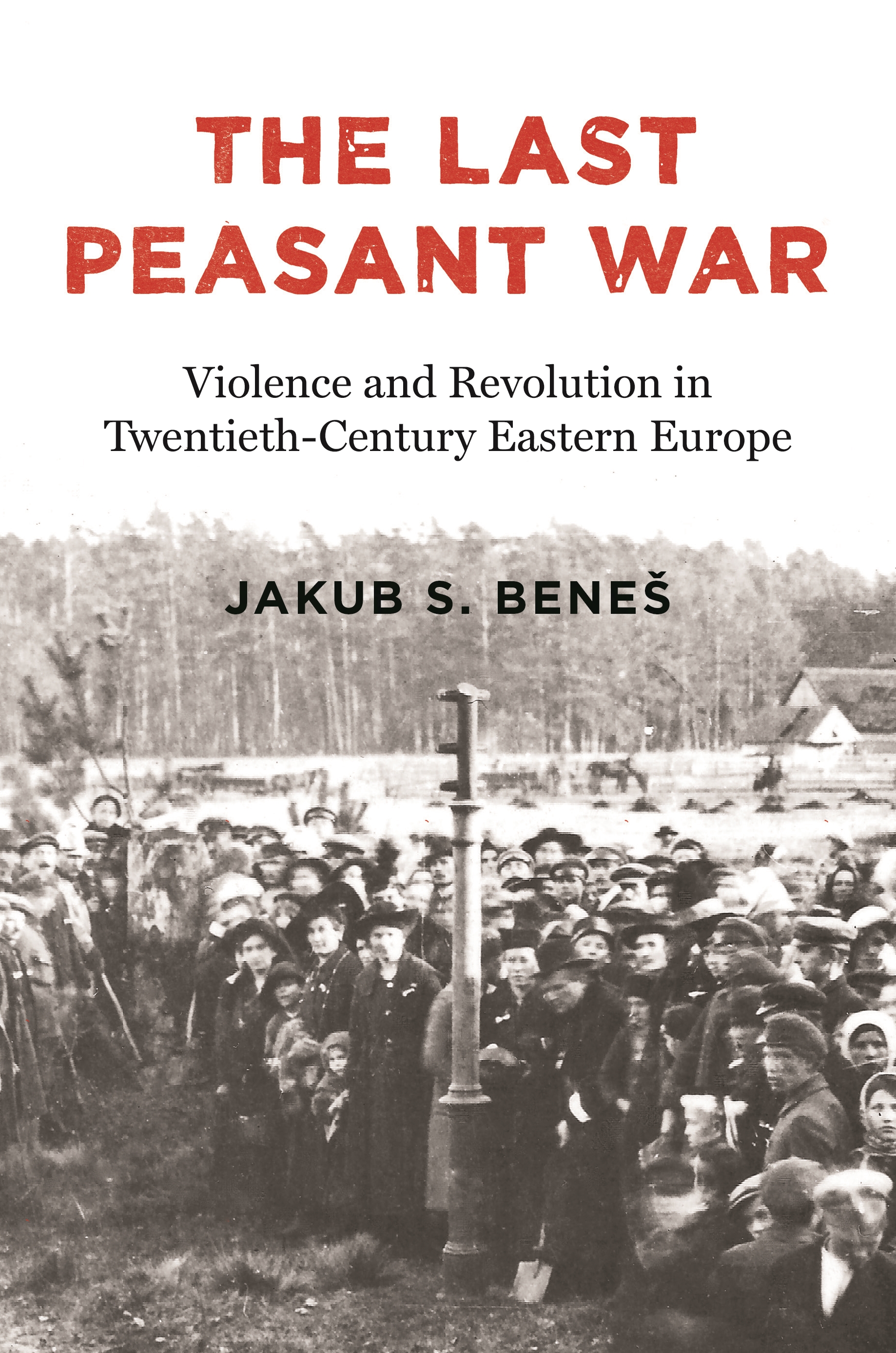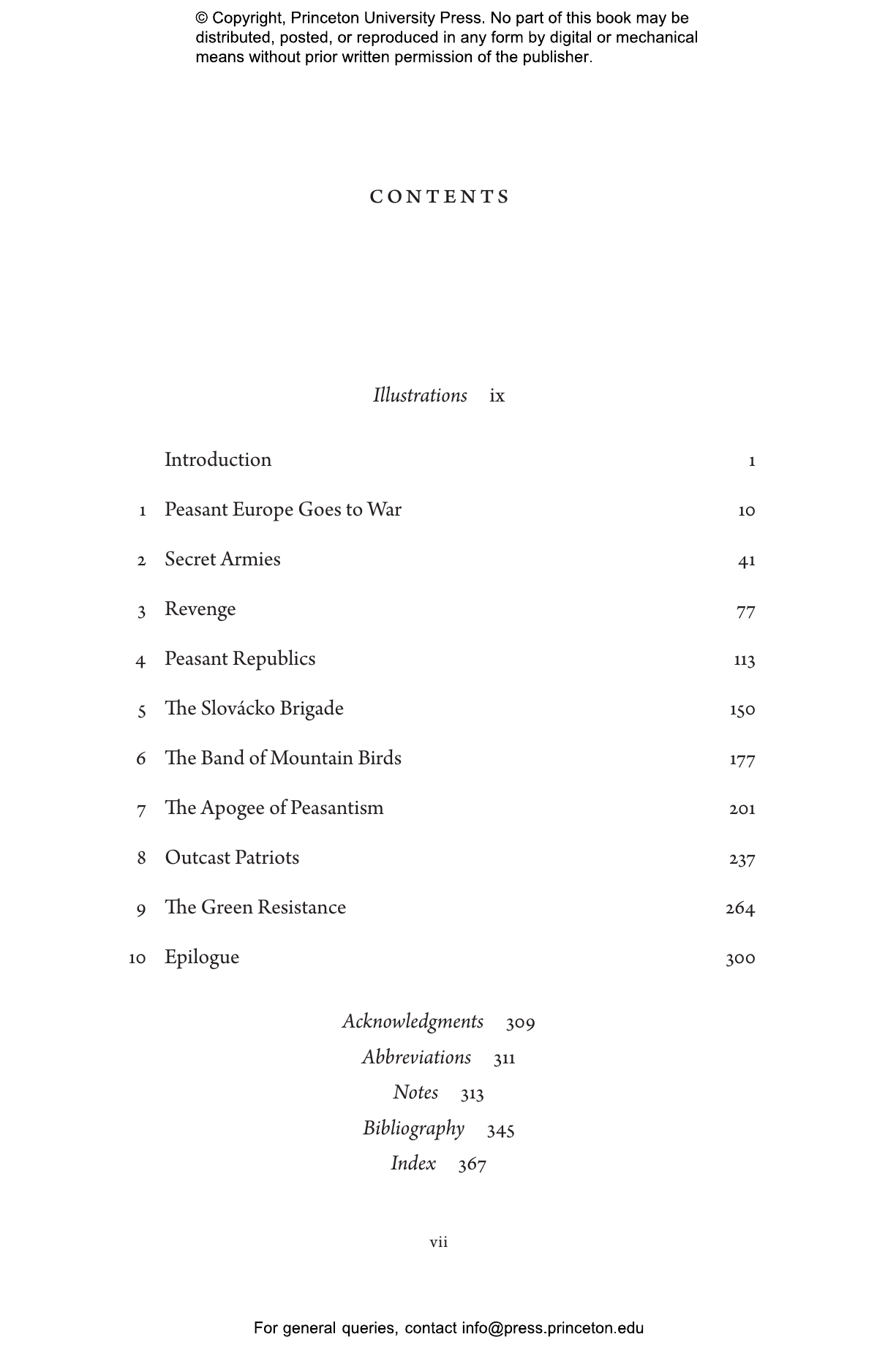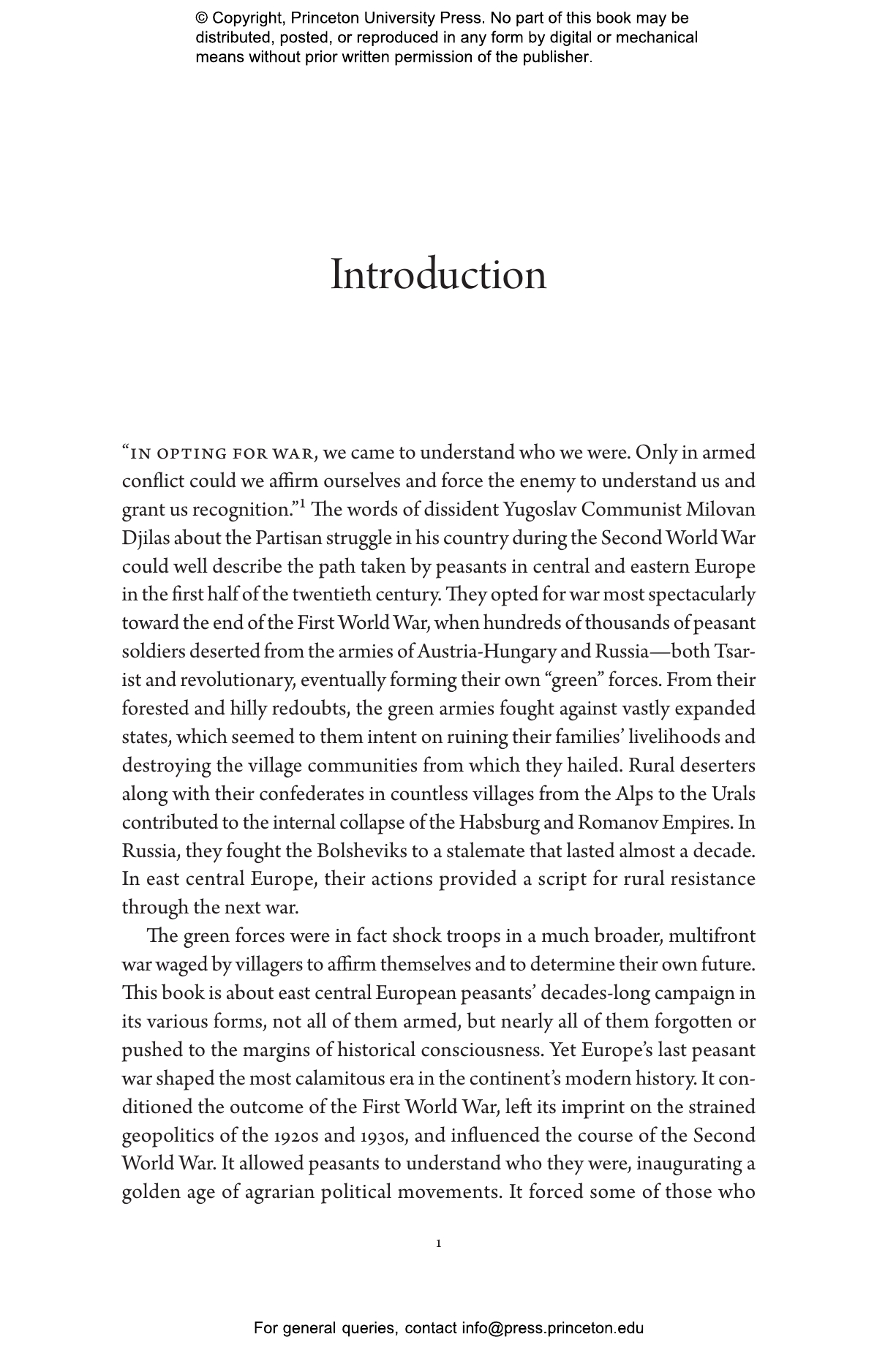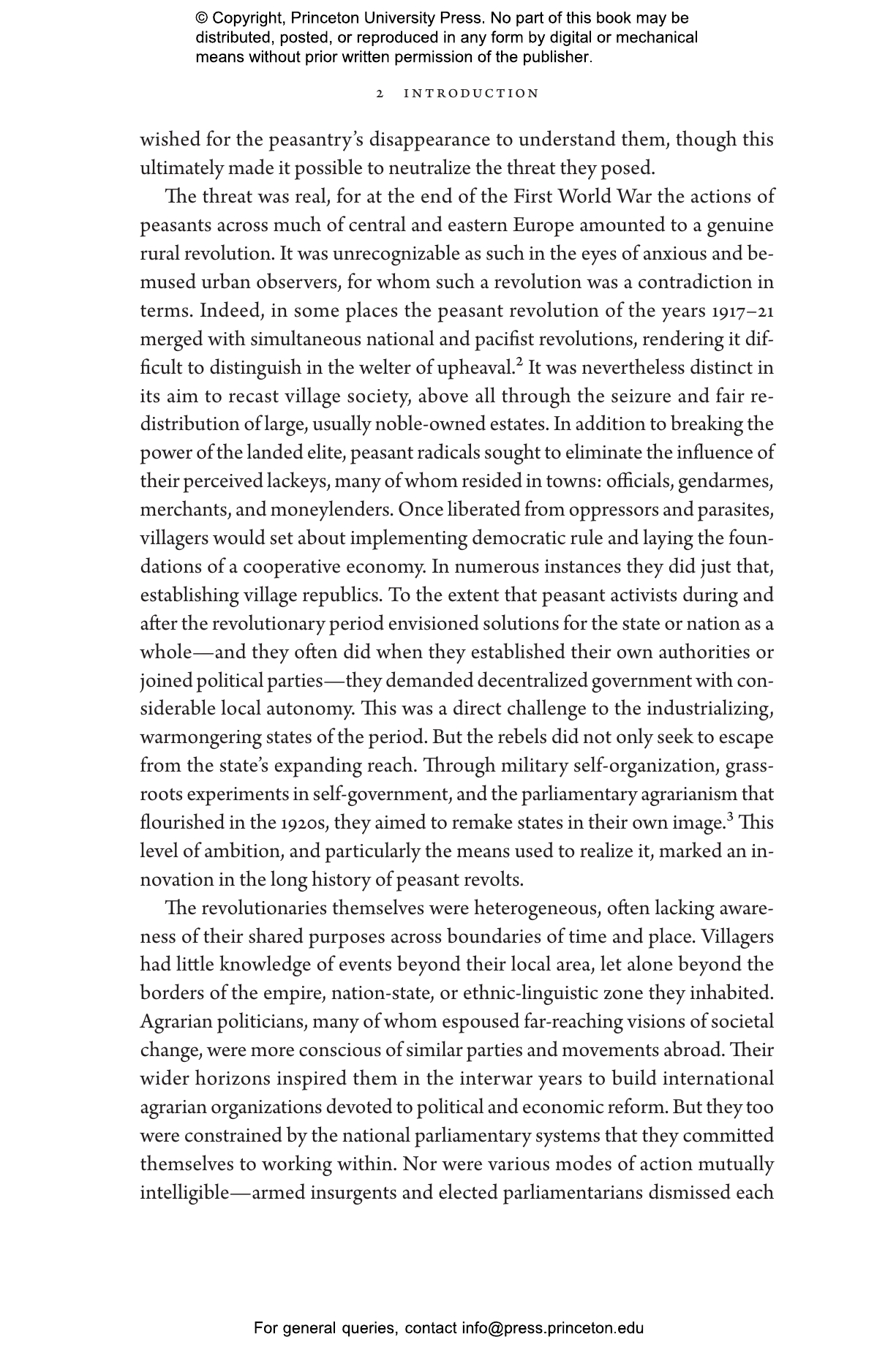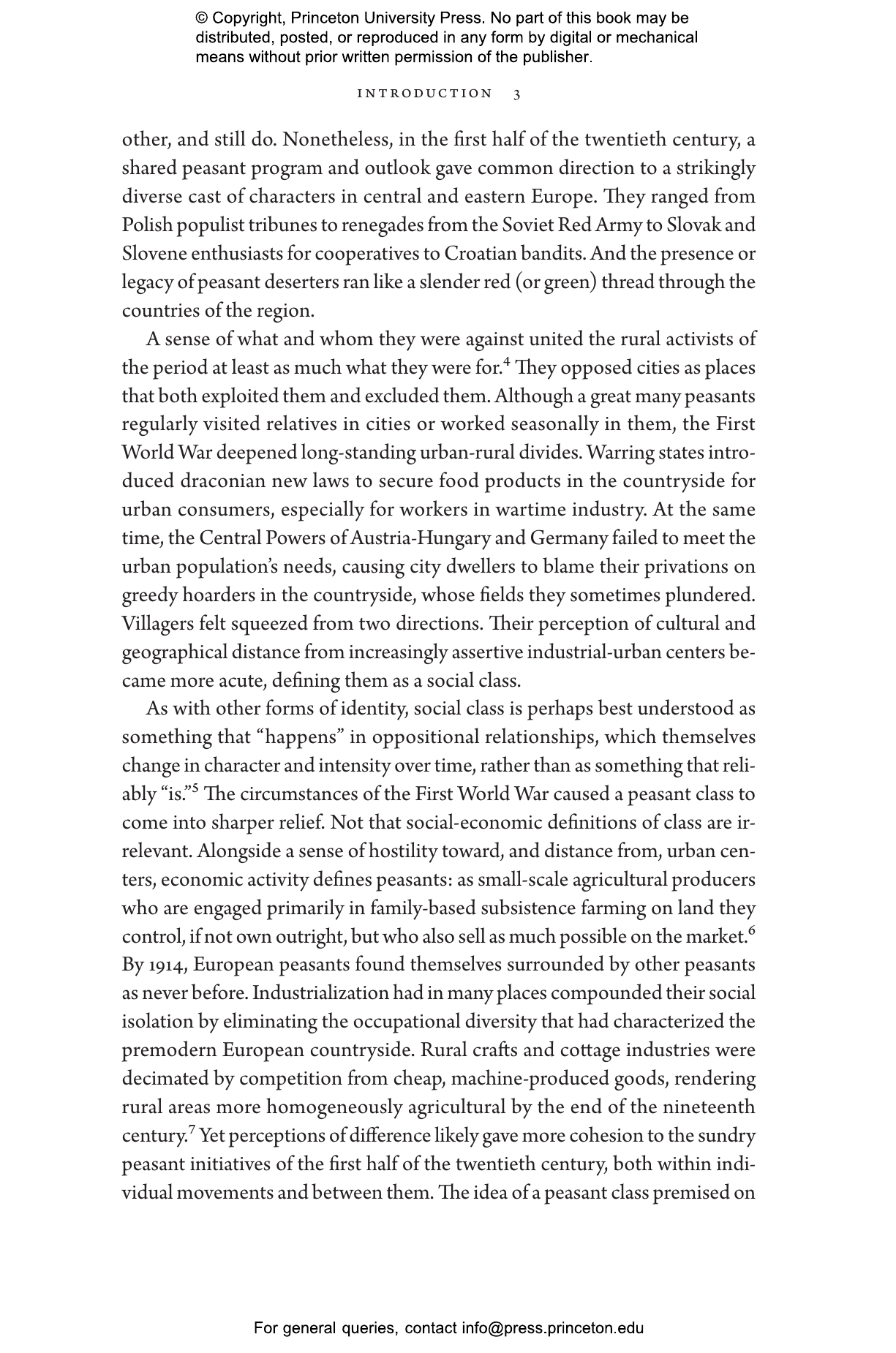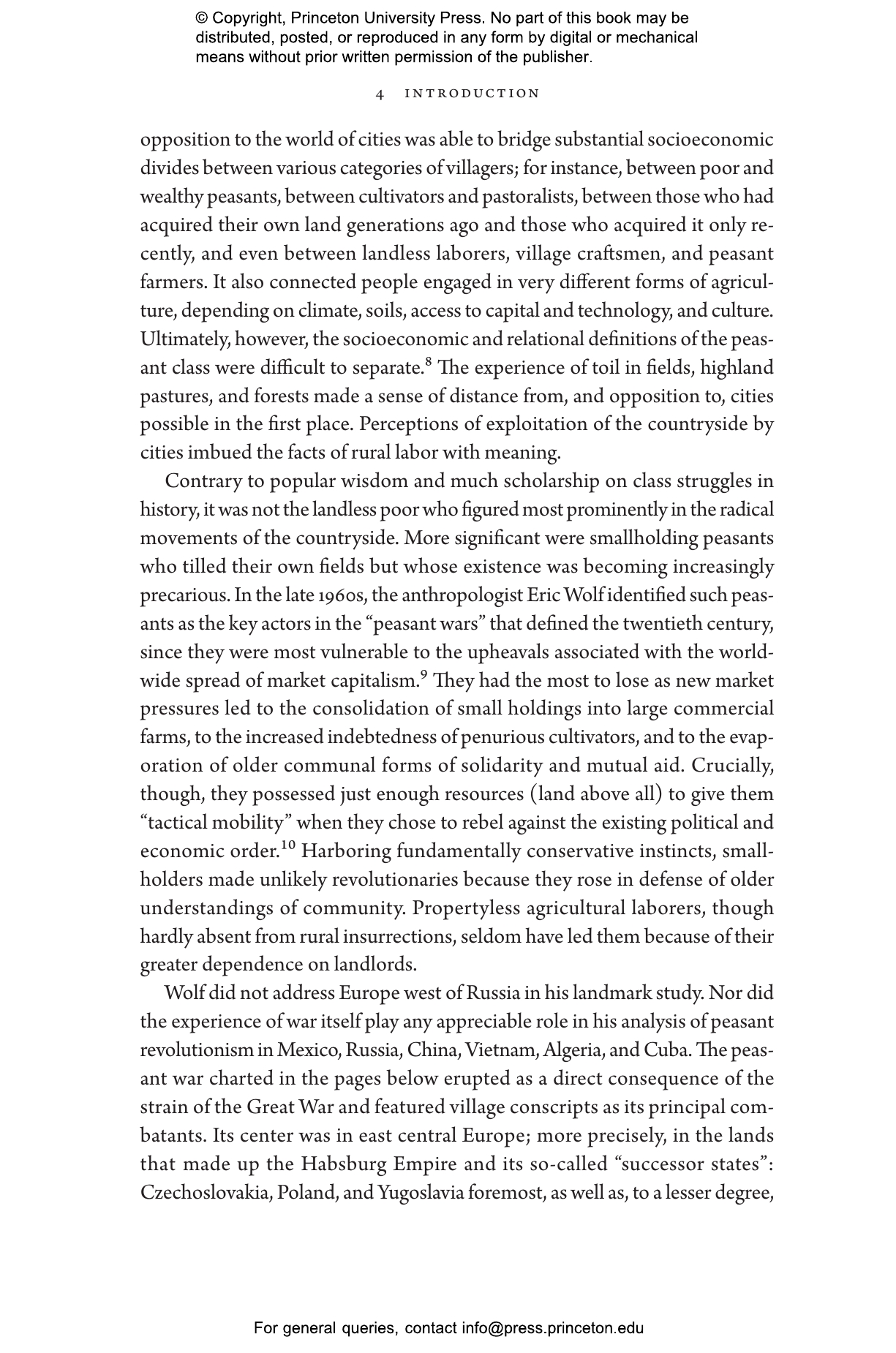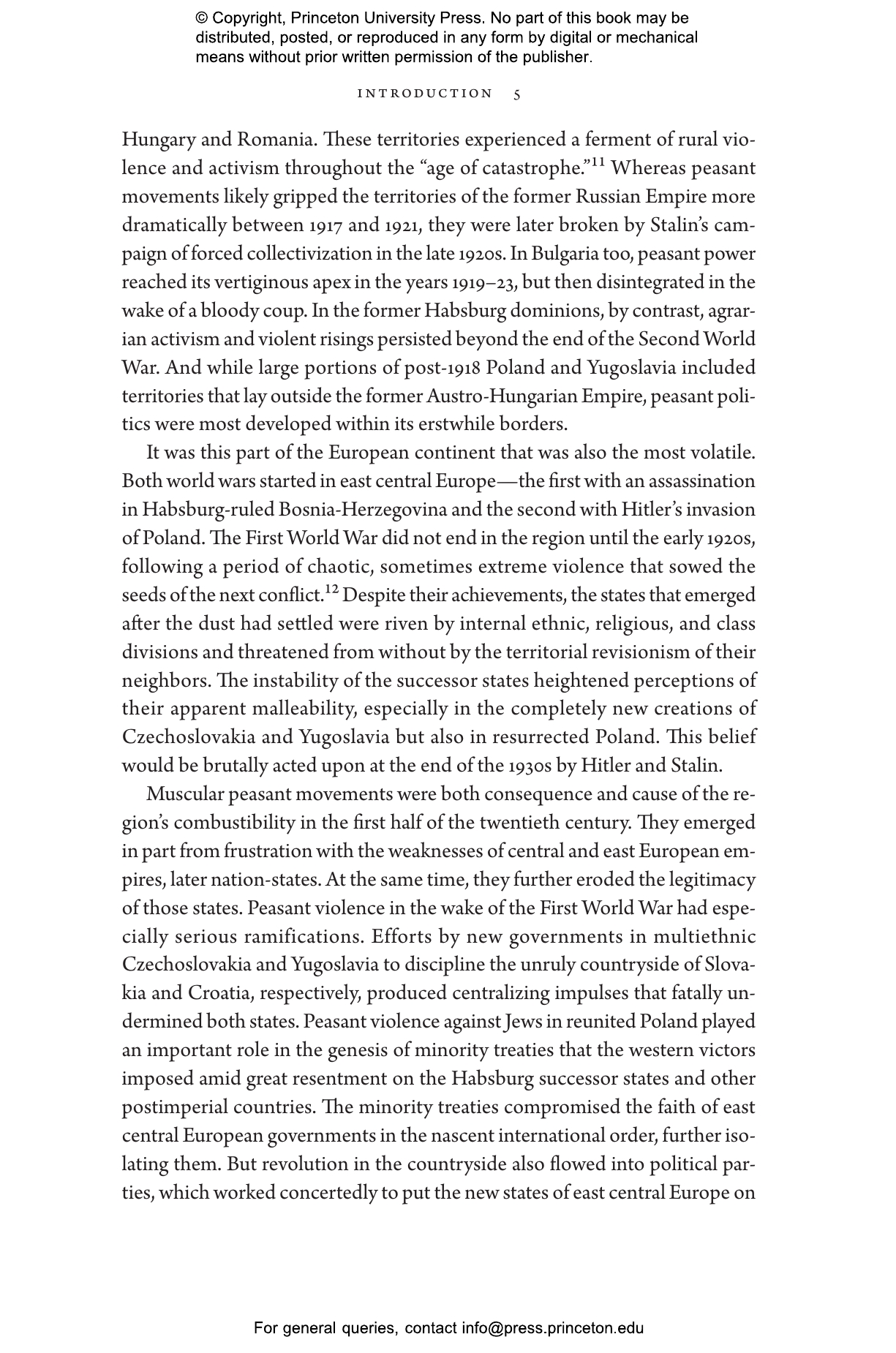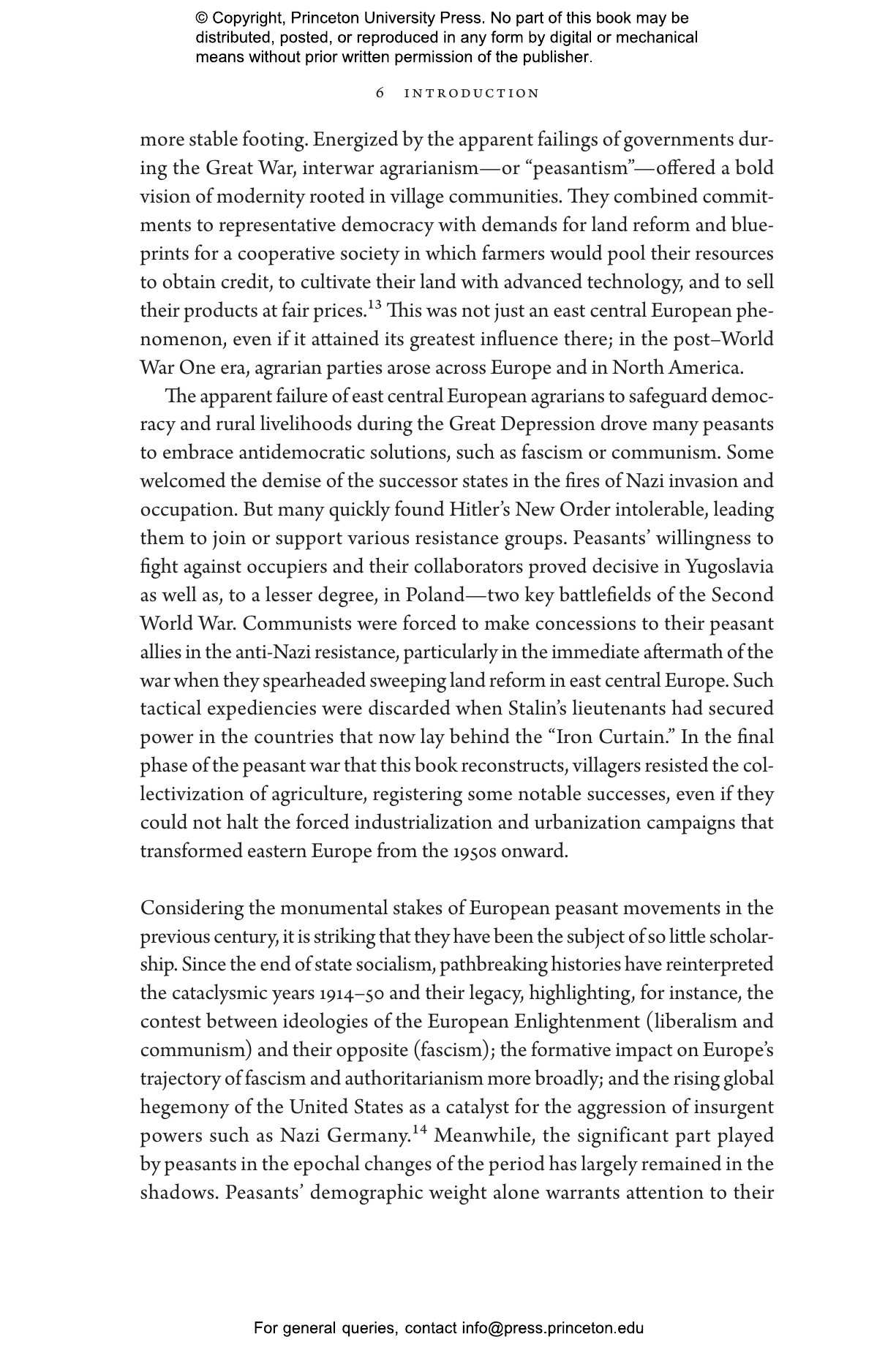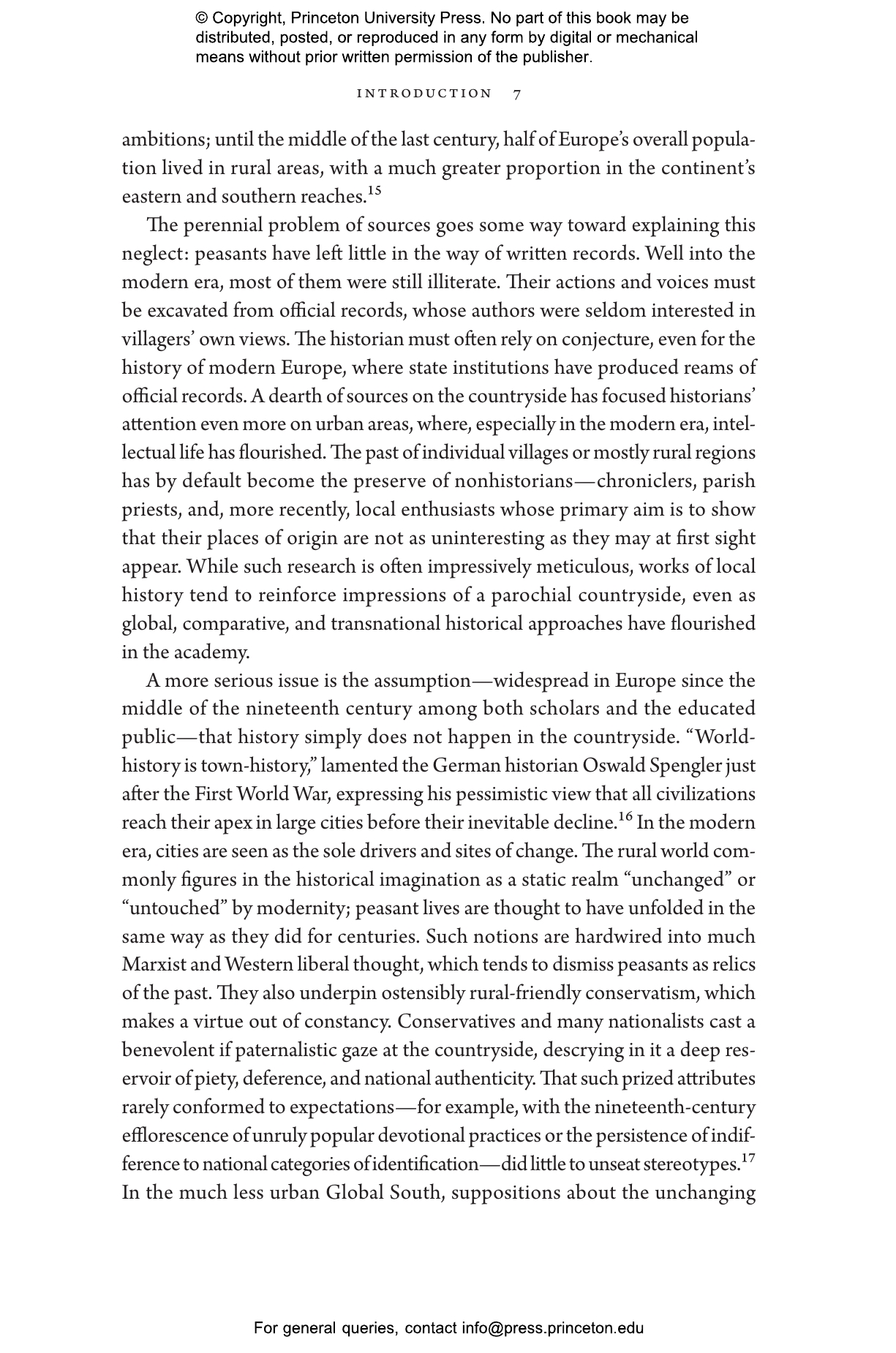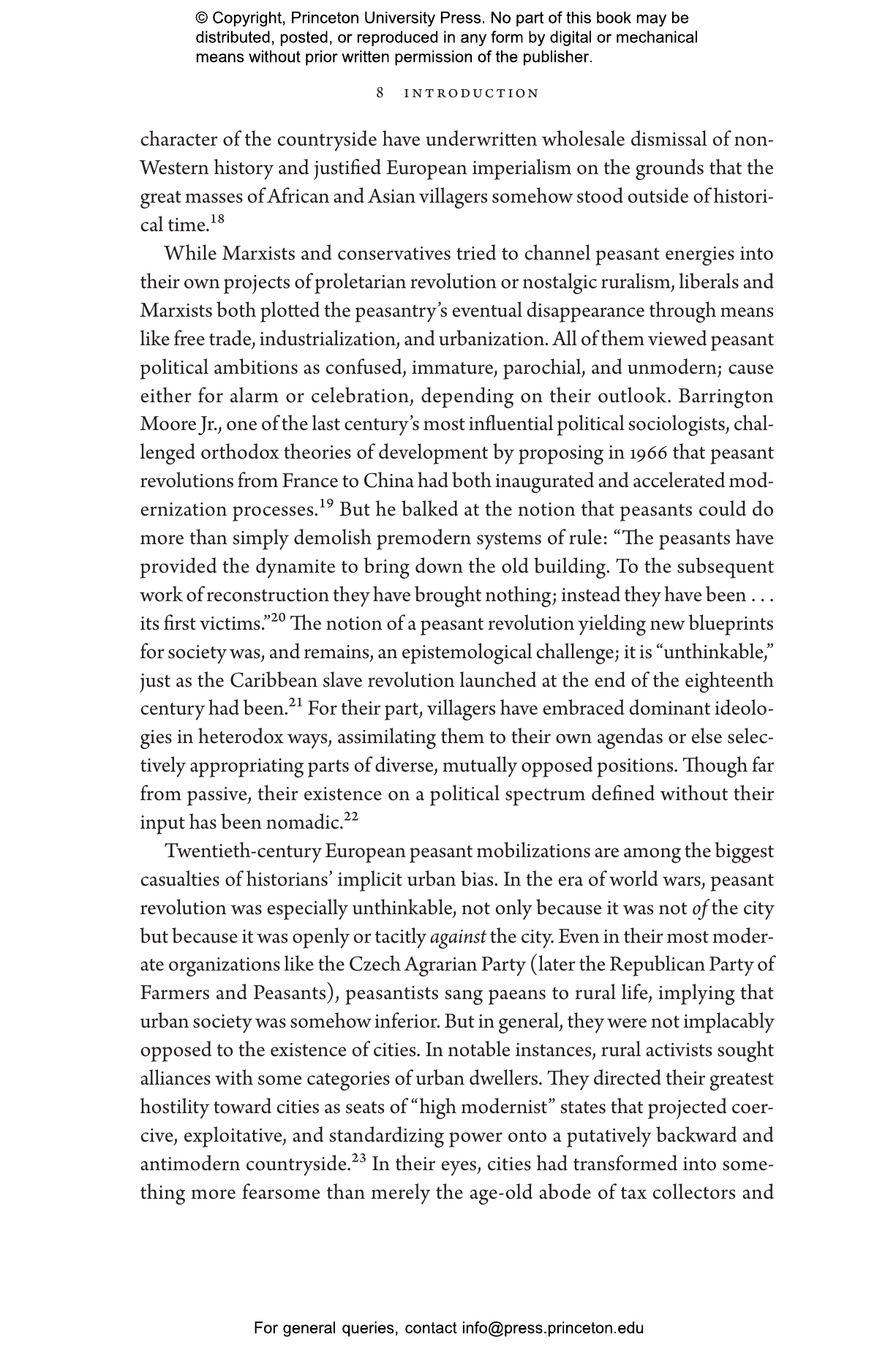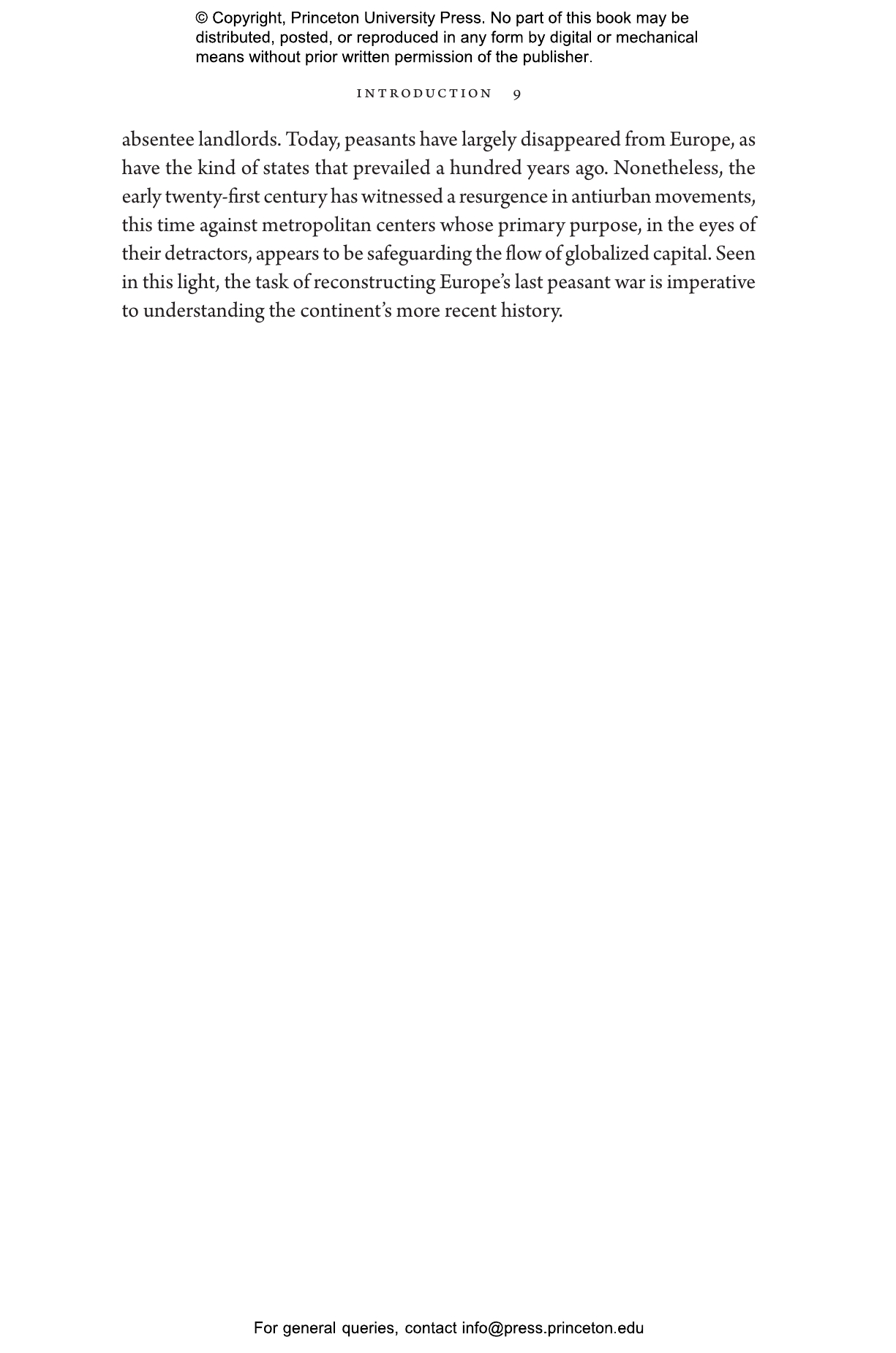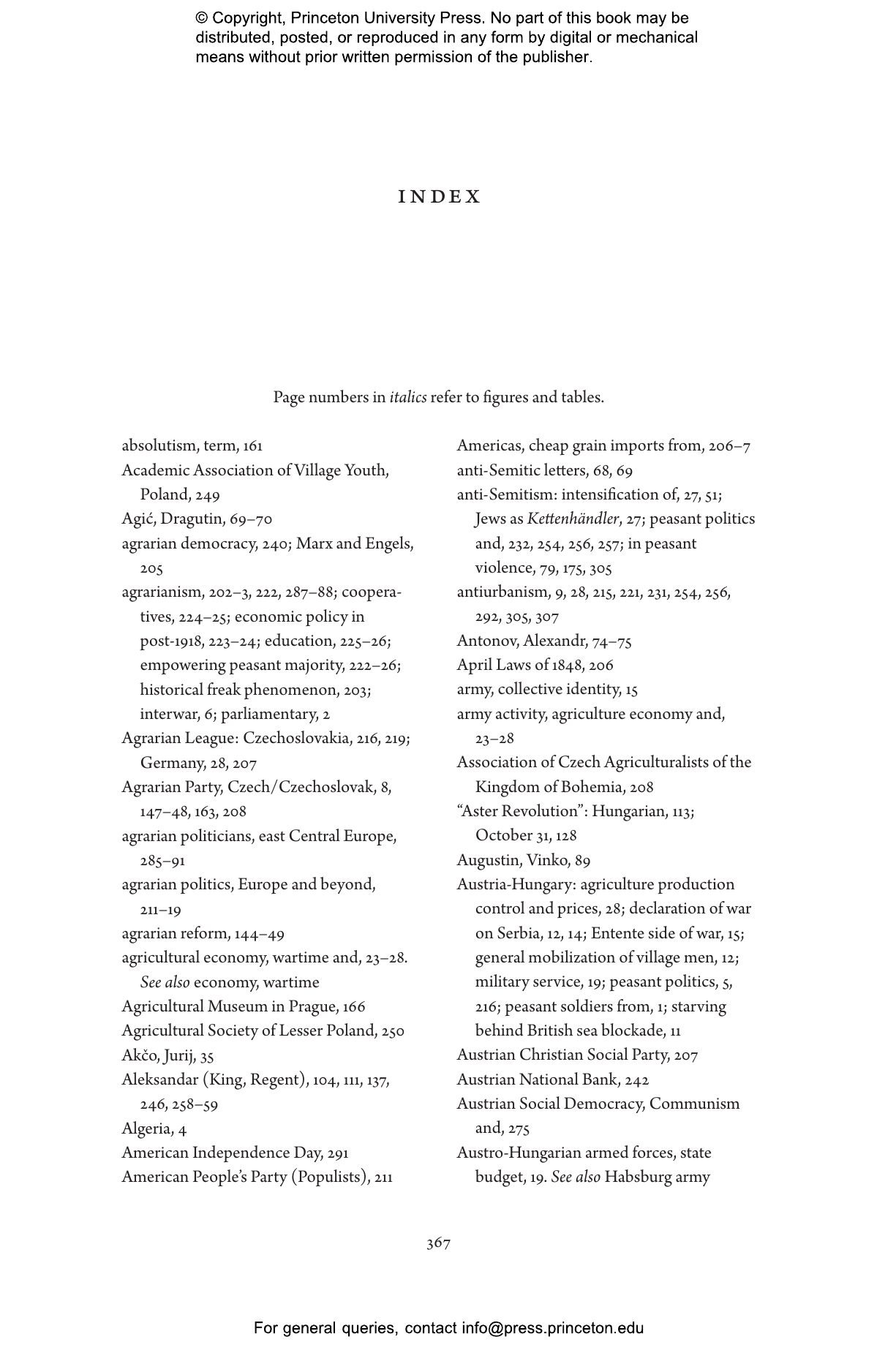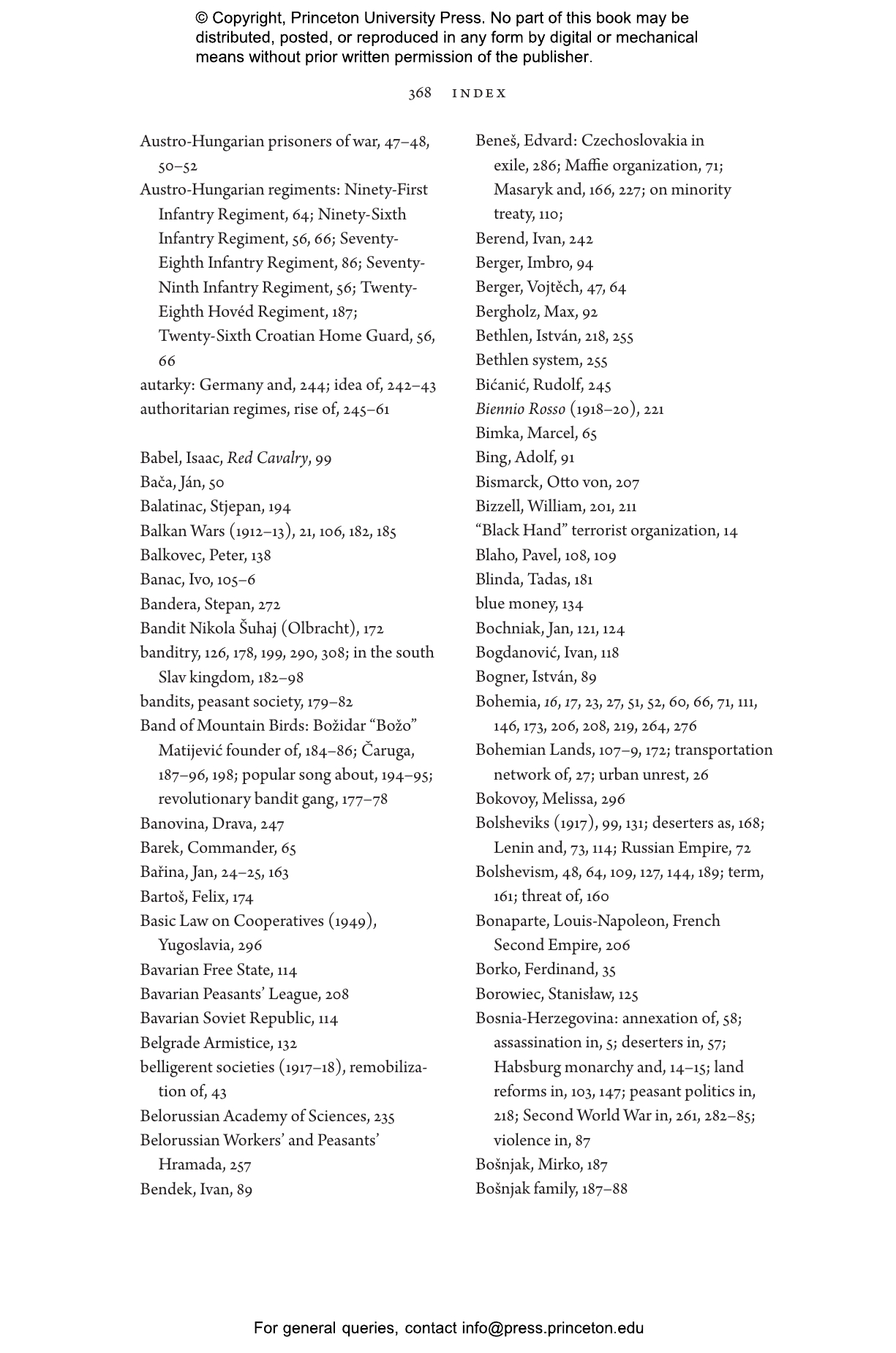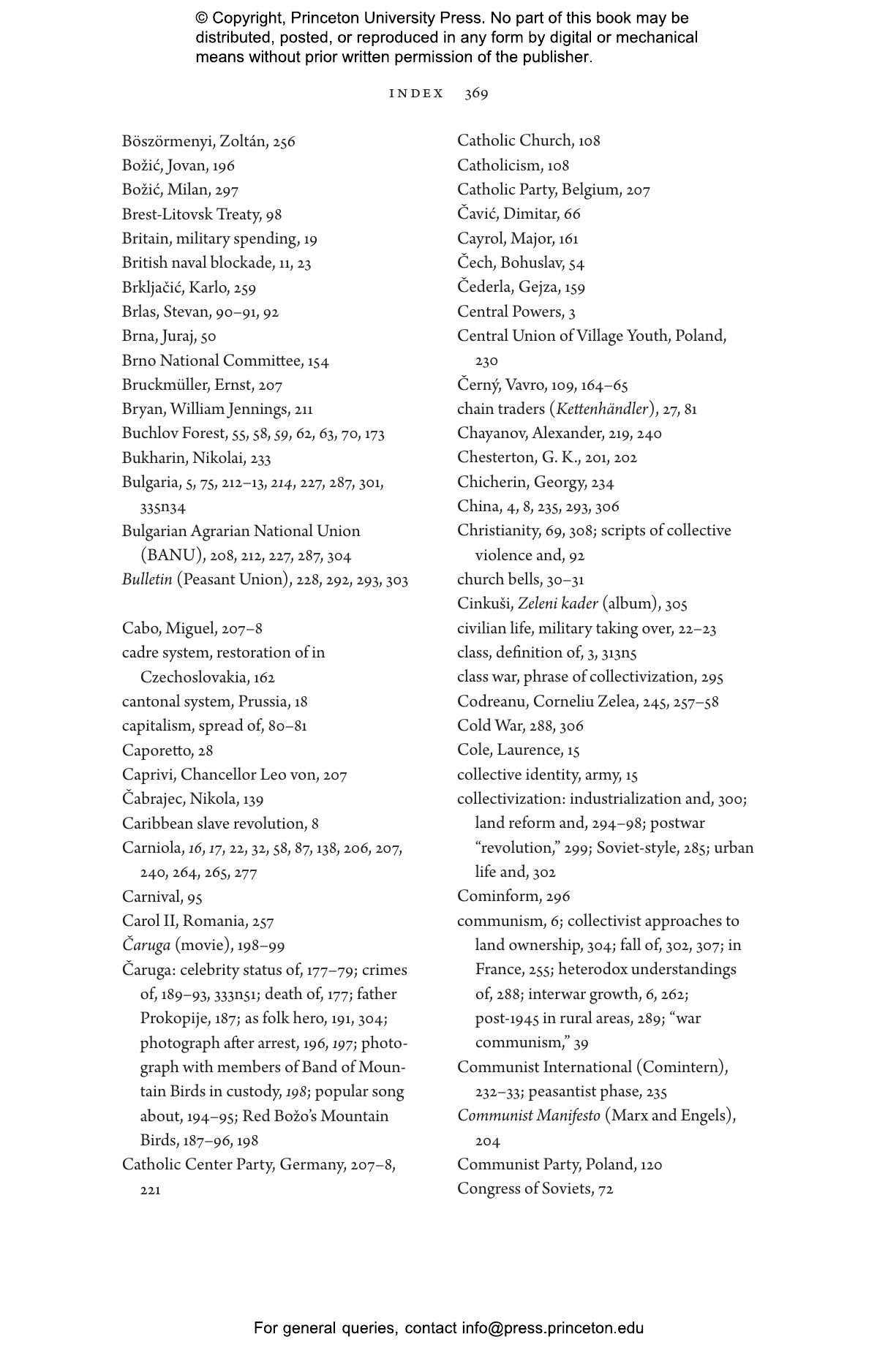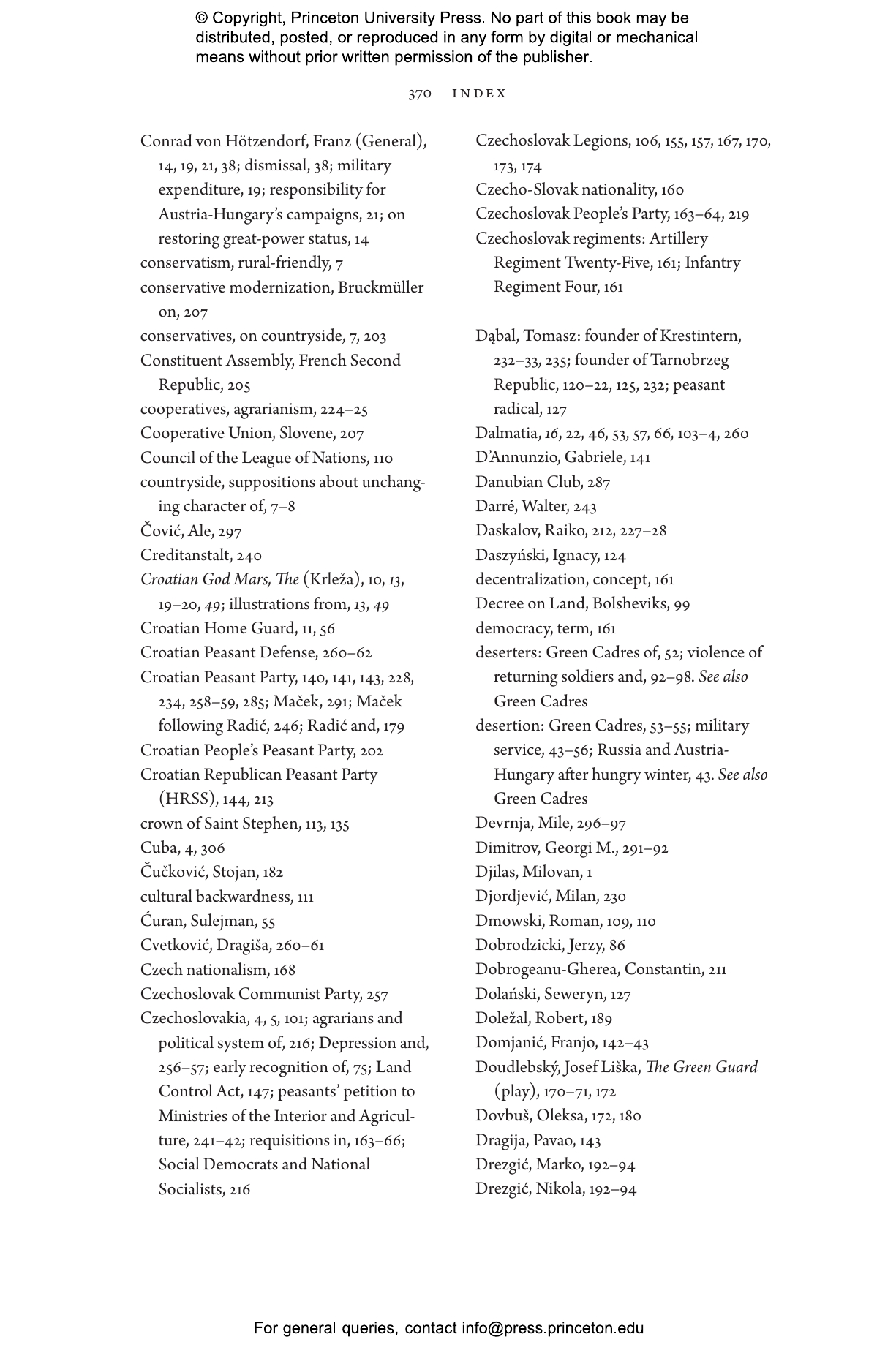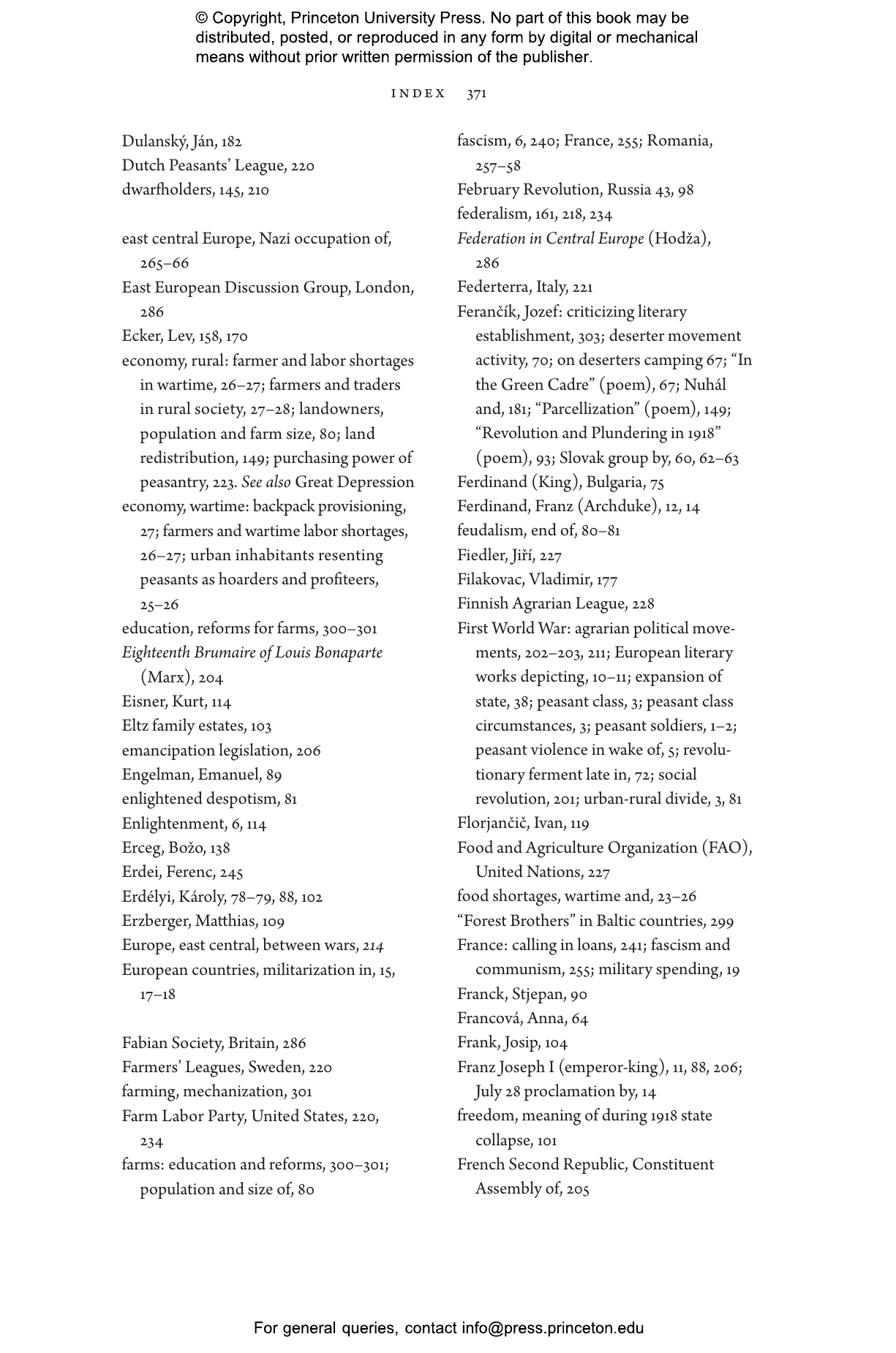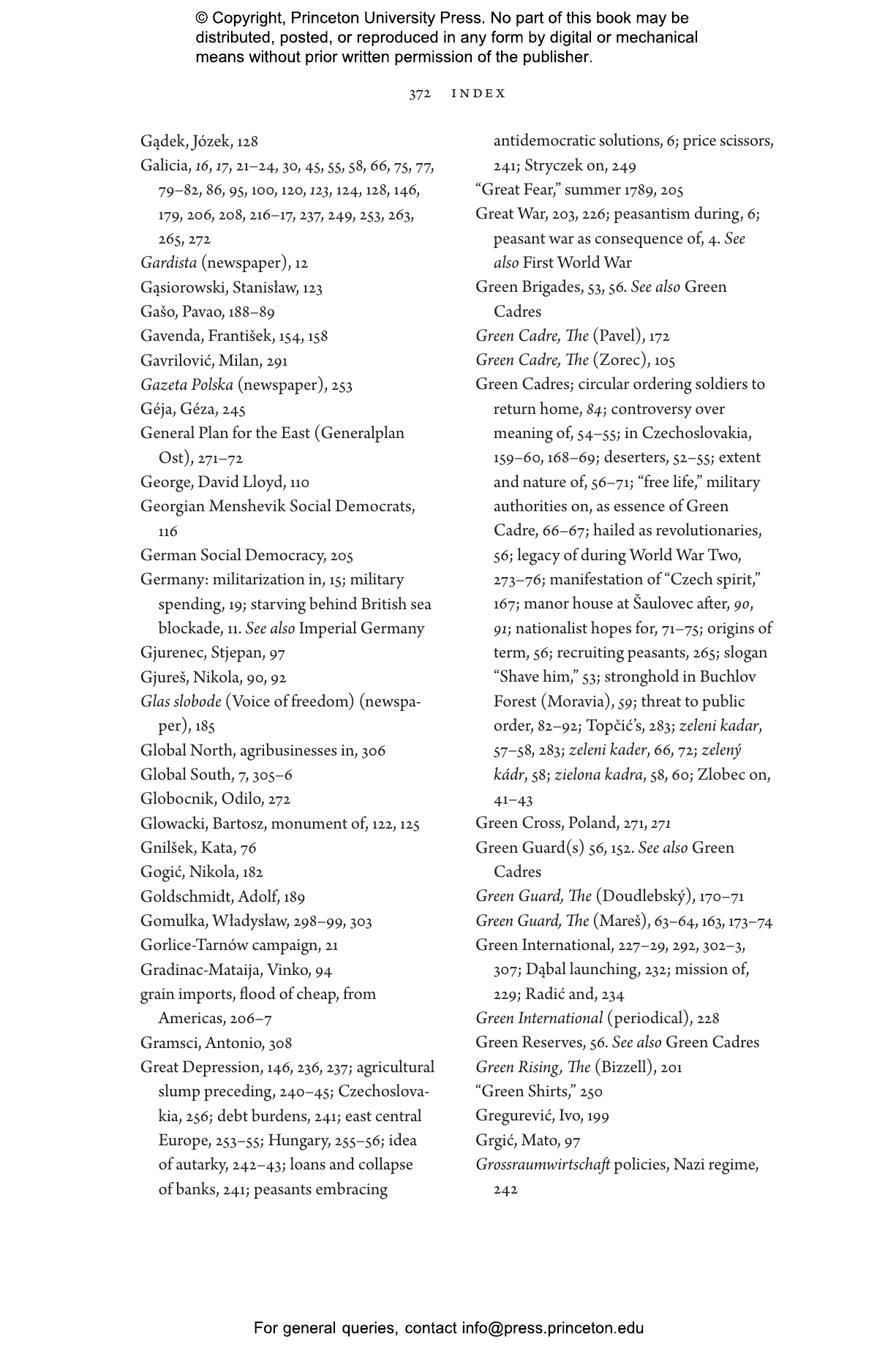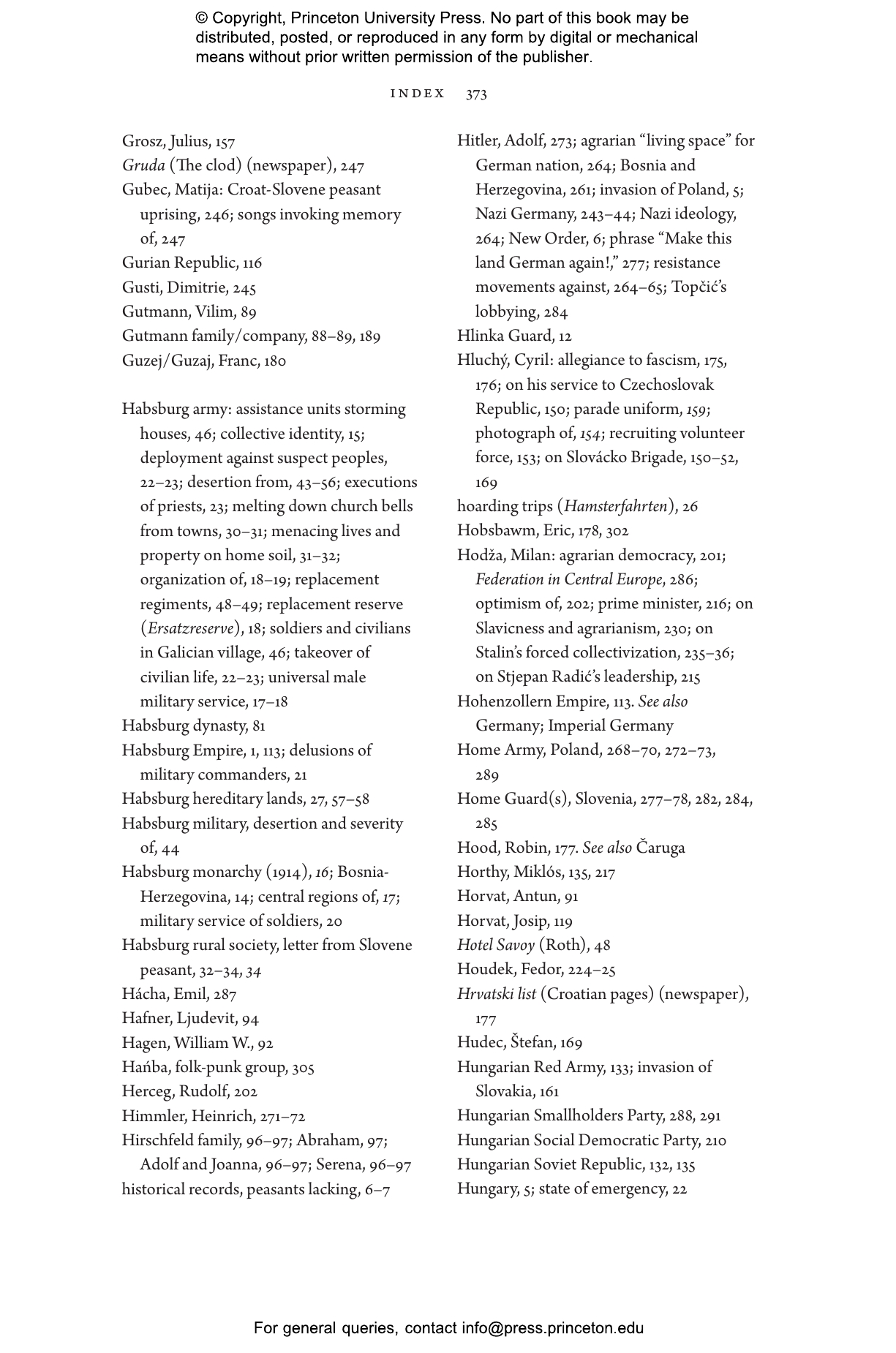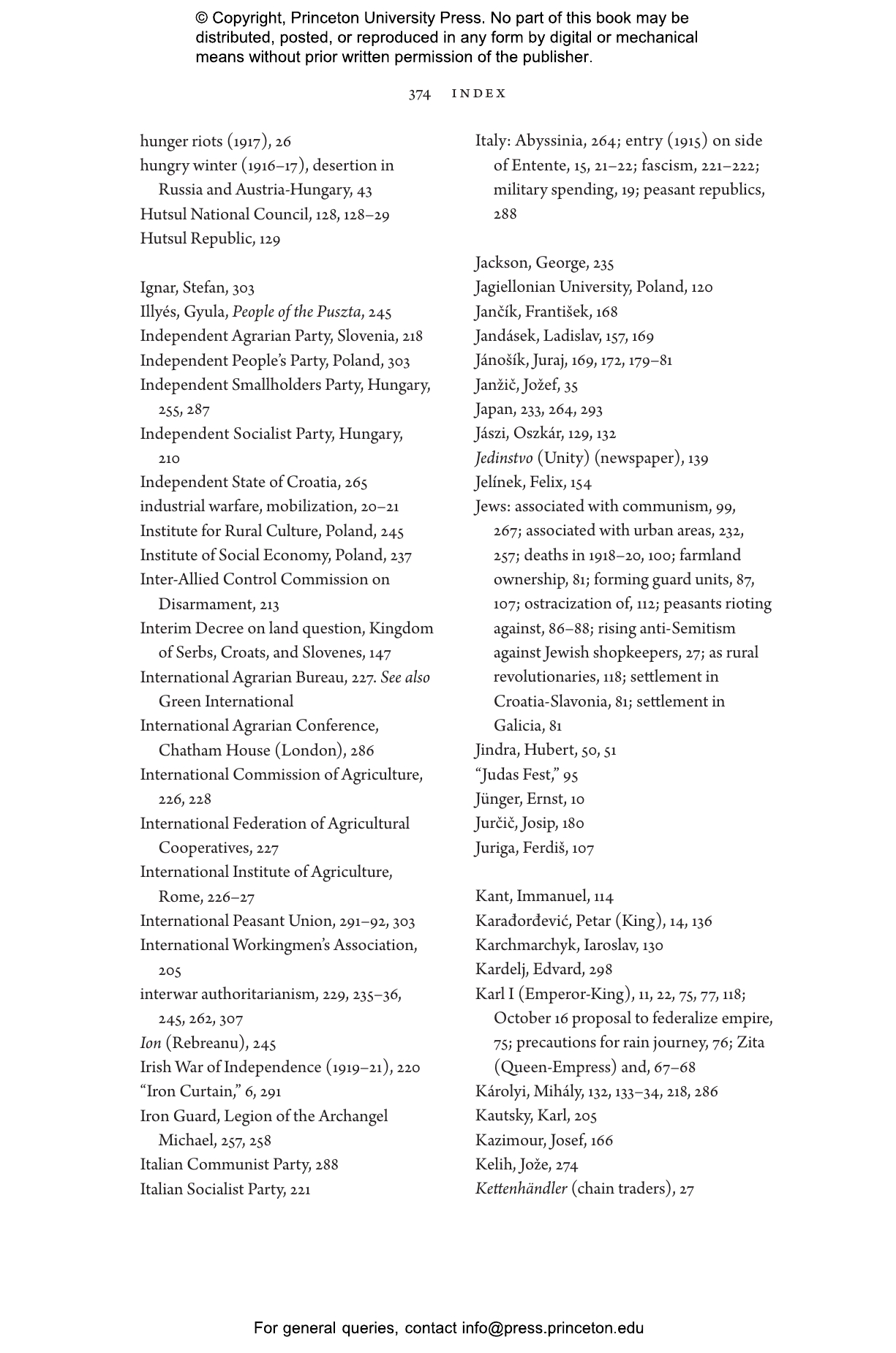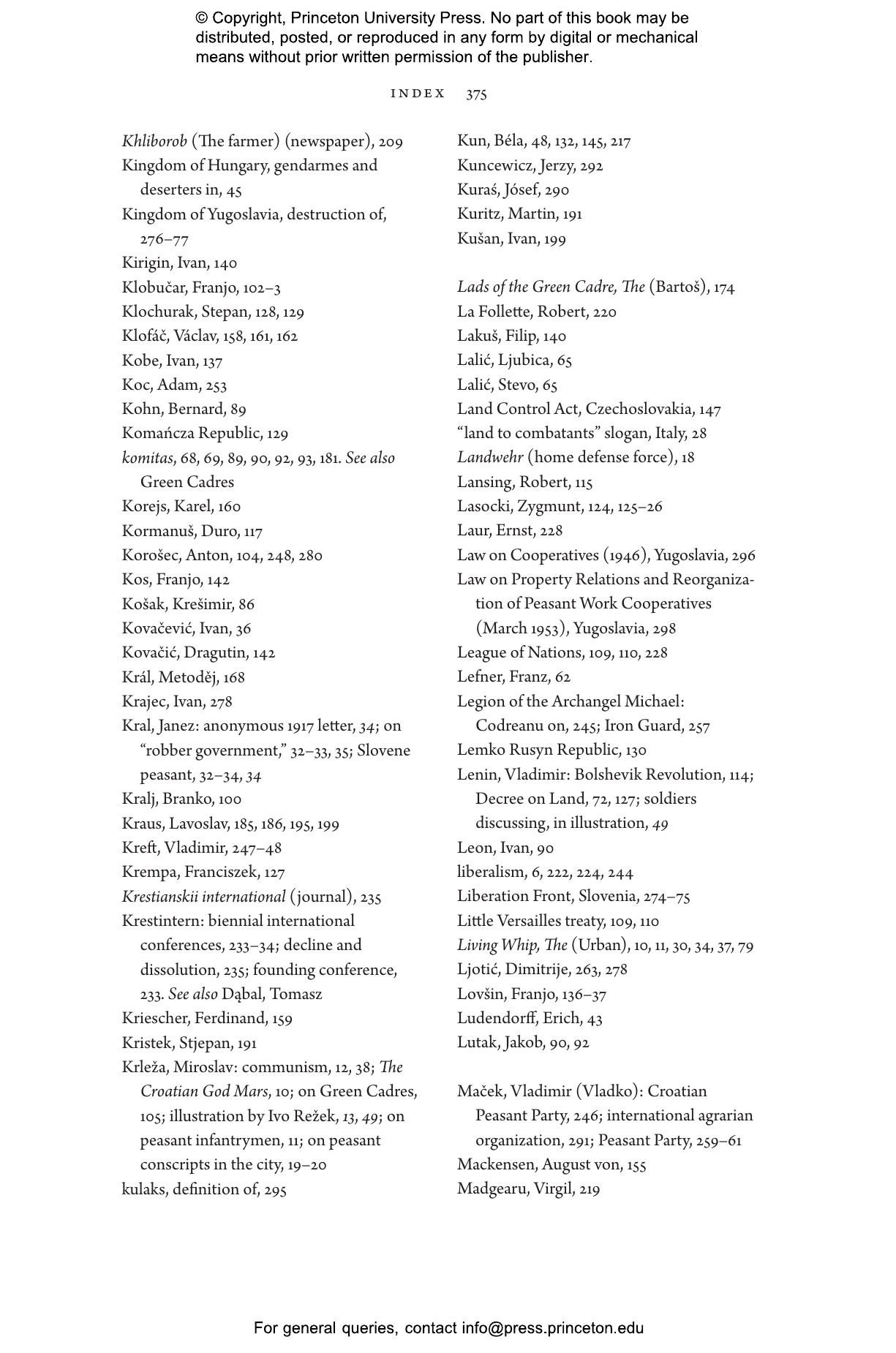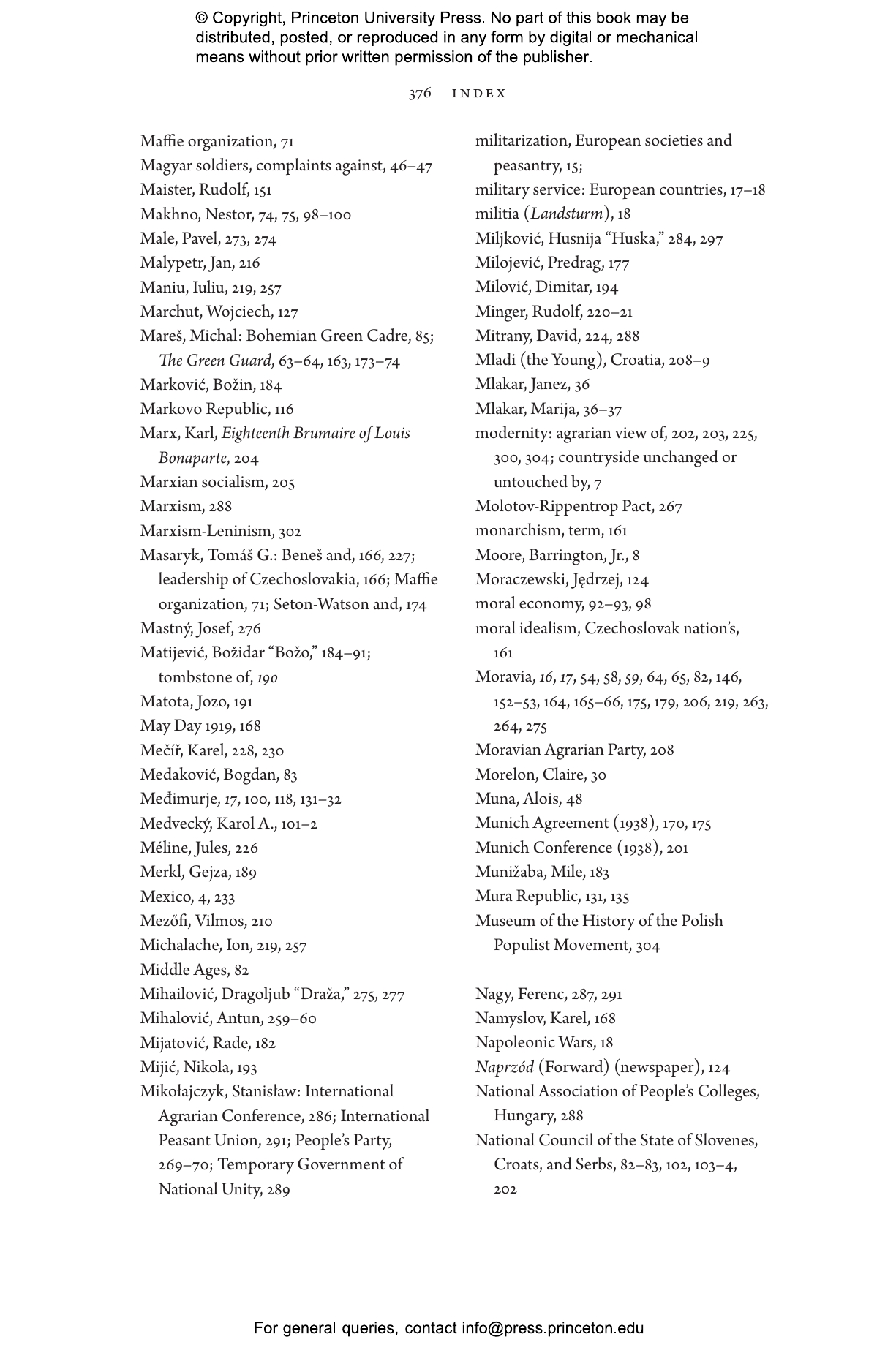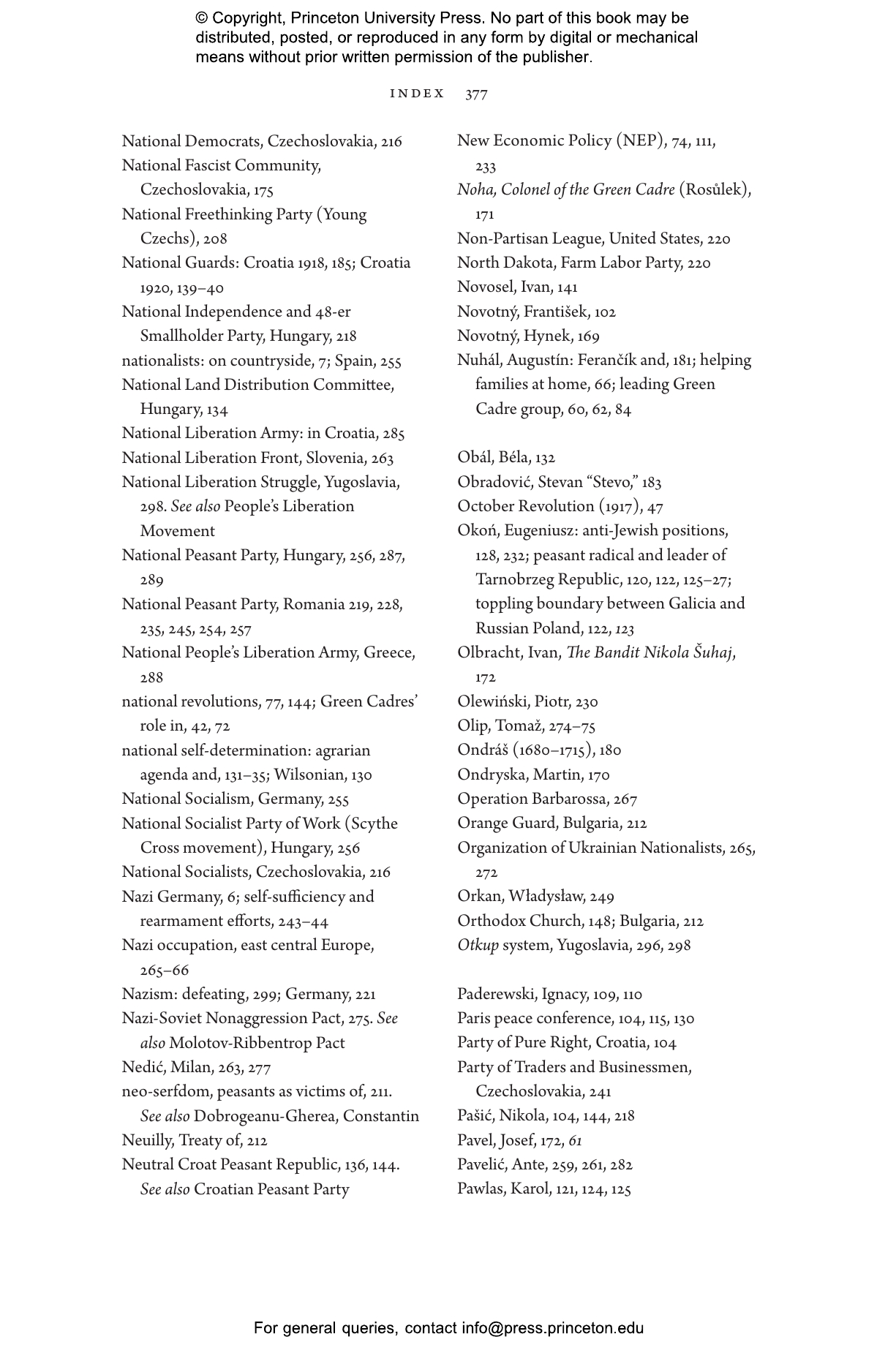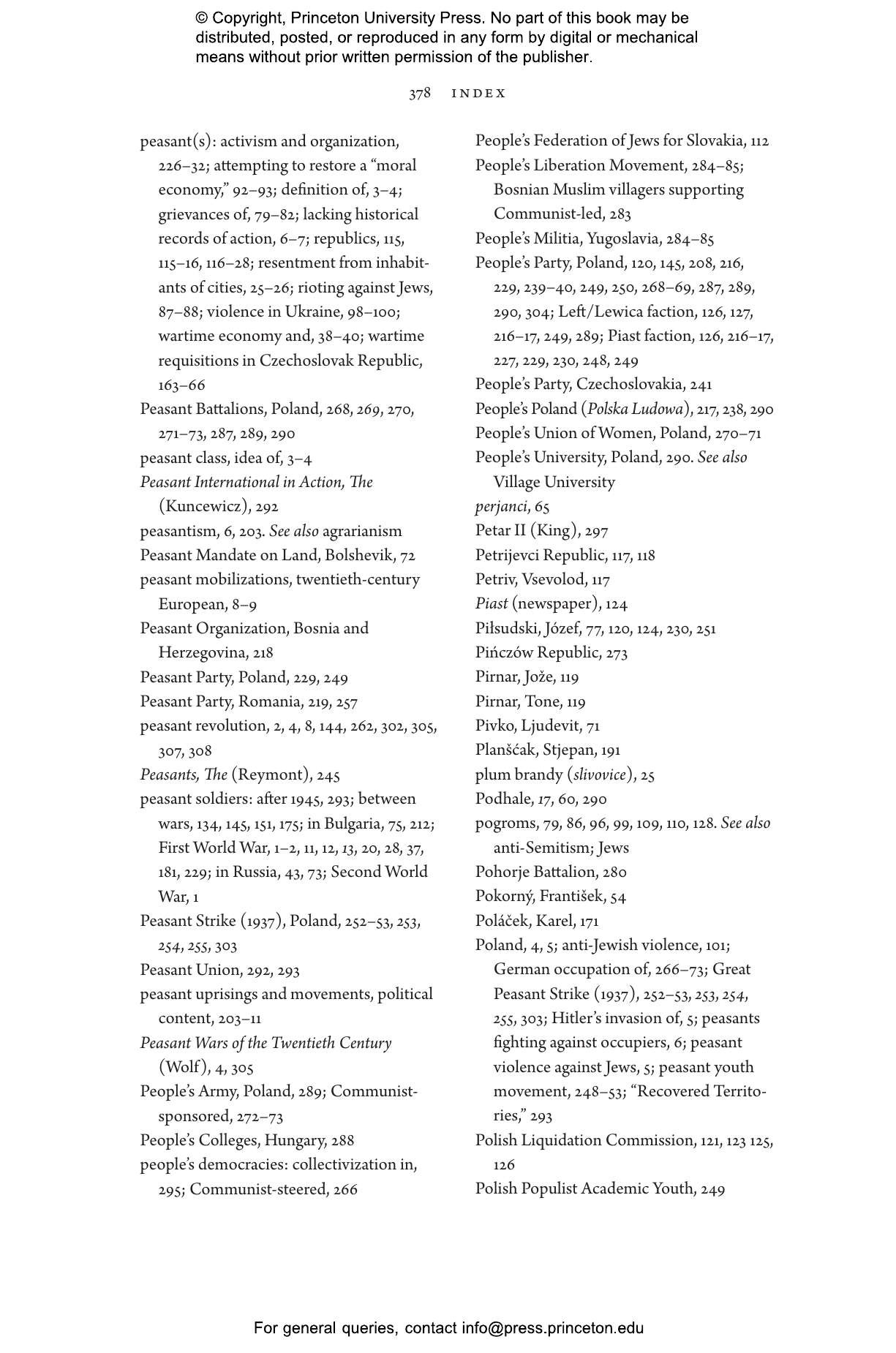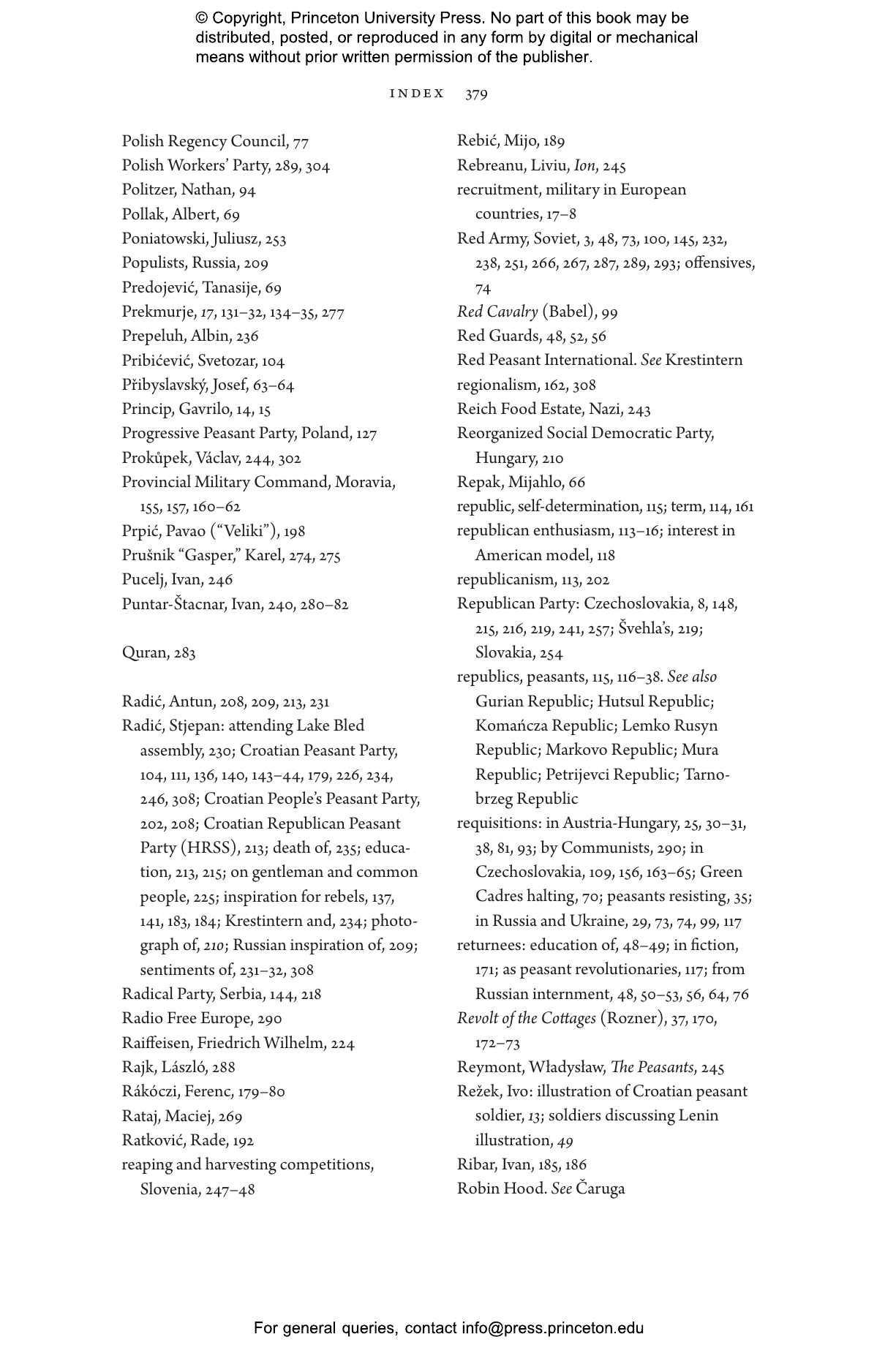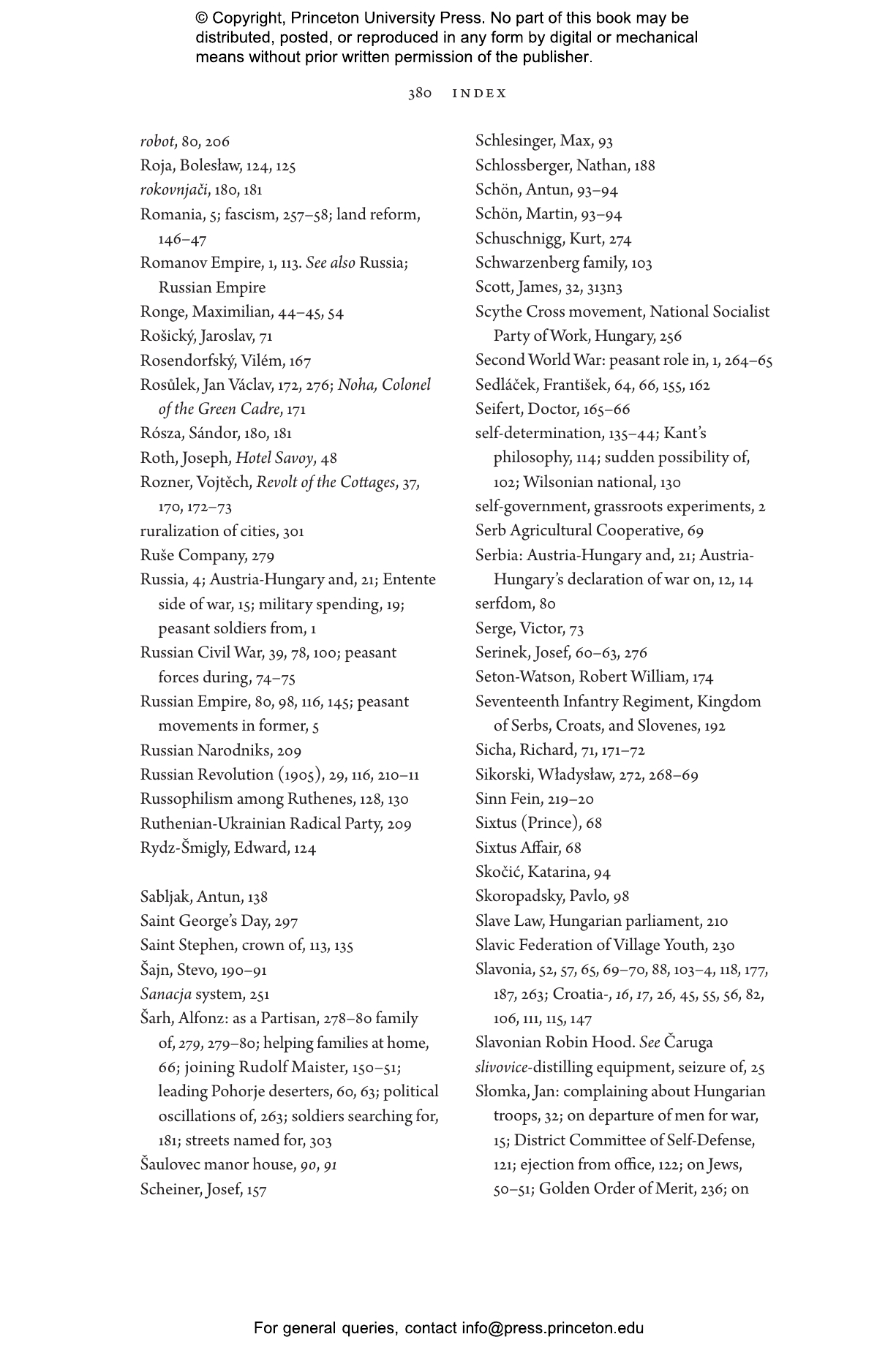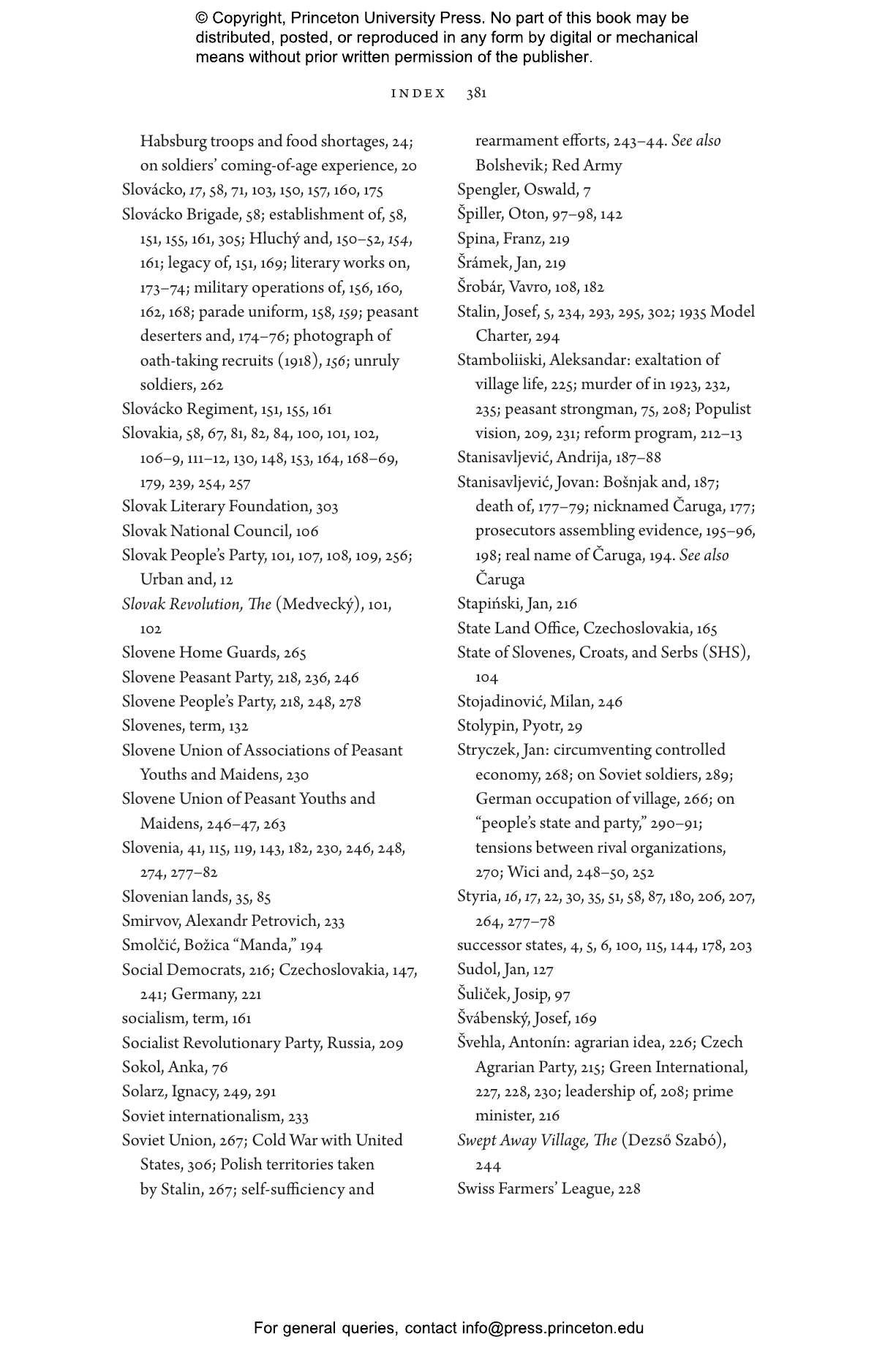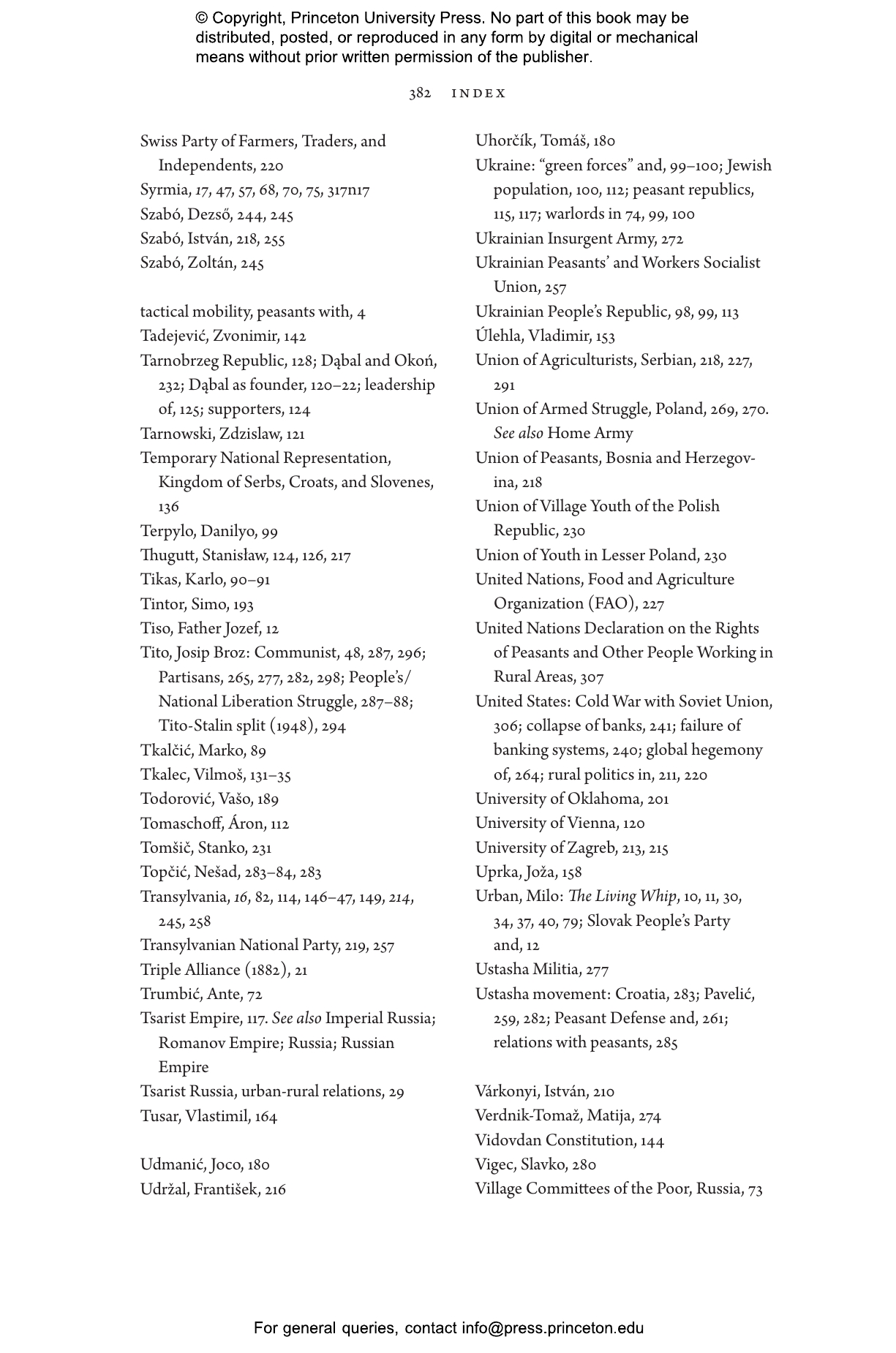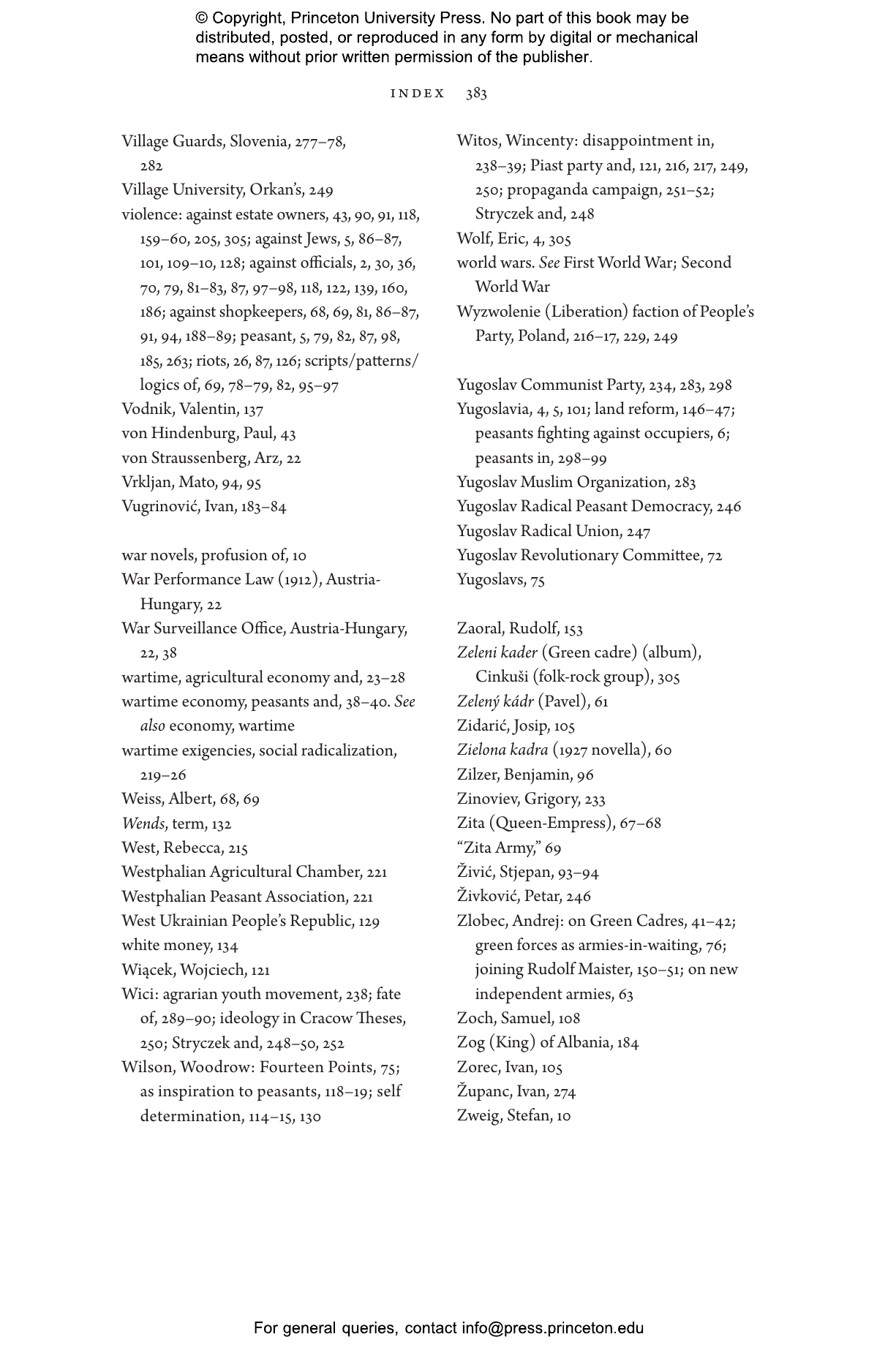As the First World War ended, villages across central and eastern Europe rose in revolt. Led in many places by a shadowy movement of army deserters, peasants attacked those whom they blamed for wartime abuses and long years of exploitation—large estate owners, officials, and merchants, who were often Jewish. At the same time, peasants tried to realize their rural visions of a reborn society, establishing local self-government or attempting to influence the new states that were being built atop the wreckage of the Austro-Hungarian and Russian Empires. In The Last Peasant War, Jakub Beneš presents the first comprehensive history of this dramatic and largely forgotten revolution and traces its impact on interwar politics and the course of the Second World War.
Sweeping large portions of the countryside between the Alps and the Urals from 1917 to 1921, this peasant revolution had momentous aftereffects, especially among Slavic peoples in the former lands of the Austro-Hungarian Empire. It enabled an unprecedented expansion of agrarian politics in the interwar period and provided a script for rural resistance that was later revived to resist Nazi occupation and to challenge Communist rule in east central Europe.
By shifting historical focus from well-studied cities to the often-neglected countryside, The Last Peasant War reveals how the movements and ambitions of peasant villagers profoundly shaped Europe’s most calamitous decades.
Jakub Beneš is associate professor of central European history at University College London. He is the author of the prize-winning Workers and Nationalism: Czech and German Social Democracy in Habsburg Austria, 1890–1918.
“This book promises to be a landmark work of European history, a bold and rare effort to advance knowledge by shifting our view from cities and states to villages and countryside: to the meadows, forests, and hillsides that produce food, shelter bandits, and elicit human stories and emotions—places that make history of which we know nothing, a bit like the dark matter that physicists seek because without it the universe would collapse.”—John Connelly, author of From Peoples into Nations: A History of Eastern Europe
“The Last Peasant War vividly tells the story of the long-forgotten peasant armies that played a crucial role in the violent upheavals that East-Central Europe experienced between the First World War and its sequel in the later 1930s. Jakub Beneš makes a crucial contribution to our understanding of that period by reminding us that these conflicts were more than just a three-way clash between the forces of democracy, communism, and fascism.”—Robert Gerwarth, author of November 1918: The German Revolution
“This is the story of a forgotten war, fought in parallel to the First World War, in which peasants throughout Central and Eastern Europe took up arms against conscription, requisitioning, and frontline service. It is the story, too, of a forgotten interwar politics, which put the plight of the peasantry at the heart of party programs and stood above the conventional divisions of Left and Right. Exhaustively researched and bold in its sweep, The Last Peasant War shows how little—until now—we really knew about Central and Eastern Europe in the First World War and interwar years.”—Martyn Rady, author of The Middle Kingdoms: A New History of Central Europe
“The rural societies of central and eastern Europe emerged from the convulsions of the Great War and the collapse of the Habsburg and other empires with a new militancy: what began as desertion and armed insurgency matured into agrarian political programs. Beneš tells this story of Europe’s first ‘green’ movements with infectious narrative verve and impressive analytical acuity. In his groundbreaking account, the rise and decline of peasant power receives its due for the first time as a key issue of the era of the two world wars.”—Robert Evans, University of Oxford


